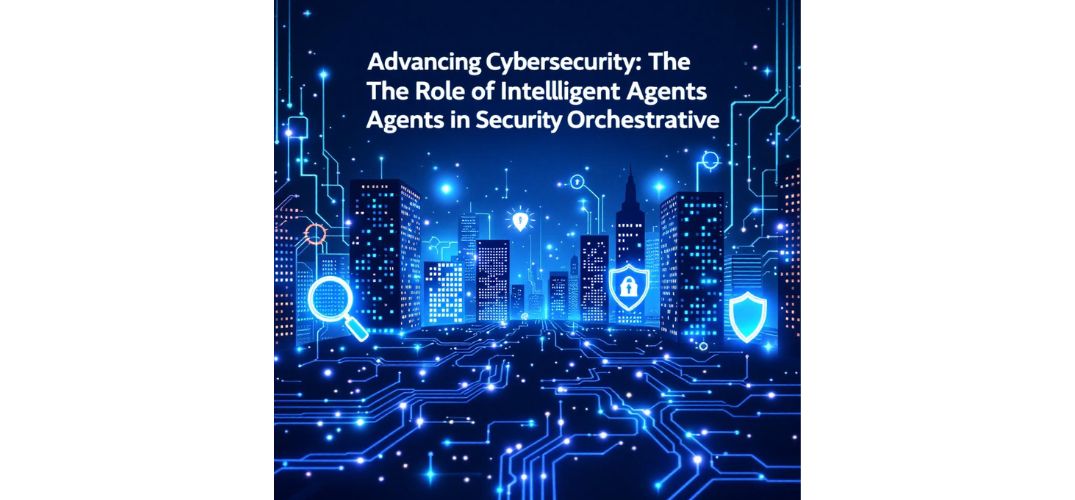Cybersecurity is undergoing a transformative shift with the introduction of intelligent agents powered by advanced large language models (LLMs). Harpreet Singh, a distinguished cybersecurity researcher, explores this evolution in his latest work, highlighting the critical role of automation in fortifying security operations. His insights into intelligent security orchestration present a future where cyber threats are detected and mitigated with unprecedented efficiency.
A Paradigm Shift in Security Operations
Traditional security models relied on static rule-based frameworks that struggled to keep pace with evolving cyber threats. With the integration of intelligent agents, security operations centers (SOCs) can now automate threat detection, streamline responses, and enhance situational awareness. The ability of these agents to analyze vast data streams in real time significantly improves organizations’ ability to identify and neutralize threats before they escalate.
Enhancing Threat Detection with Machine Learning
One of the most groundbreaking aspects of intelligent cybersecurity agents is their ability to leverage machine learning and natural language processing. By continuously analyzing network activity, these systems detect anomalies and recognize new attack patterns faster than human analysts. This automation reduces the mean time to detect (MTTD) threats by 63% and improves detection accuracy by 71%, making security infrastructures more resilient against cyber-attacks. Moreover, by adapting to new threats in real time, these intelligent systems reduce the reliance on traditional rule-based security protocols, which often fail to address novel attack vectors.
Automating Incident Response for Faster Mitigation
Time is a crucial factor in cybersecurity. Automated response mechanisms enabled by intelligent agents allow organizations to act swiftly when threats are detected. By integrating security information and event management (SIEM) systems with automated playbooks, SOCs can deploy countermeasures in real time. This results in significantly shorter incident response times, preventing potential breaches from escalating into full-scale security crises. Additionally, these automated responses help reduce false positives by accurately differentiating between genuine threats and benign anomalies, ensuring that security teams focus on the most critical alerts.
Streamlining Security Orchestration Across Platforms
Modern cybersecurity environments are complex, often incorporating multiple security tools that operate in silos. Intelligent agents help unify these systems, allowing for seamless data correlation and comprehensive monitoring. By orchestrating responses across multiple security layers—firewalls, intrusion detection systems, and endpoint protection—these agents enhance the overall efficiency of security workflows.
Revolutionizing Threat Intelligence Integration
Threat intelligence feeds are crucial in predicting and countering cyber threats. Intelligent agents analyze diverse data sources, identifying Indicators of Compromise (IoCs) and emerging tactics used by cybercriminals. By integrating these insights into security strategies, organizations gain a proactive defense mechanism that anticipates attacks before they occur.
The Role of AI in Healthcare Cybersecurity
The healthcare sector, which handles sensitive patient data, has particularly benefited from intelligent cybersecurity agents. These systems monitor and secure electronic health records (EHRs), ensuring compliance with stringent regulatory frameworks while mitigating risks associated with cyber-attacks. By implementing automated security protocols, healthcare organizations can safeguard patient information while streamlining operations. Furthermore, intelligent agents help mitigate insider threats by monitoring access patterns and detecting unusual user behavior, ensuring that patient data remains protected from both external and internal risks.
Future Implications: Towards Self-Adaptive Security Frameworks
The future of cybersecurity will be shaped by self-learning security systems that adapt to evolving threats. Organizations are increasingly investing in AI-driven security orchestration platforms that enhance visibility, automate workflows, and optimize security resources. As these systems continue to evolve, they promise to create a more secure digital landscape where cyber threats are addressed with minimal human intervention. The ongoing advancements in AI-driven security frameworks indicate that organizations will soon be able to predict, prevent, and neutralize threats with near-zero latency, ensuring a robust and proactive cybersecurity posture.
In conclusion, intelligent agents in cybersecurity mark a pivotal shift in how organizations protect their digital assets. Harpreet Singh’s research underscores the importance of automation, real-time analytics, and machine learning in modern security frameworks. As cyber threats grow more sophisticated, embracing intelligent security orchestration will be essential in maintaining robust cybersecurity defenses. The integration of these technologies strengthens existing security measures and paves the way for a more adaptable security landscape in the years to come.



































